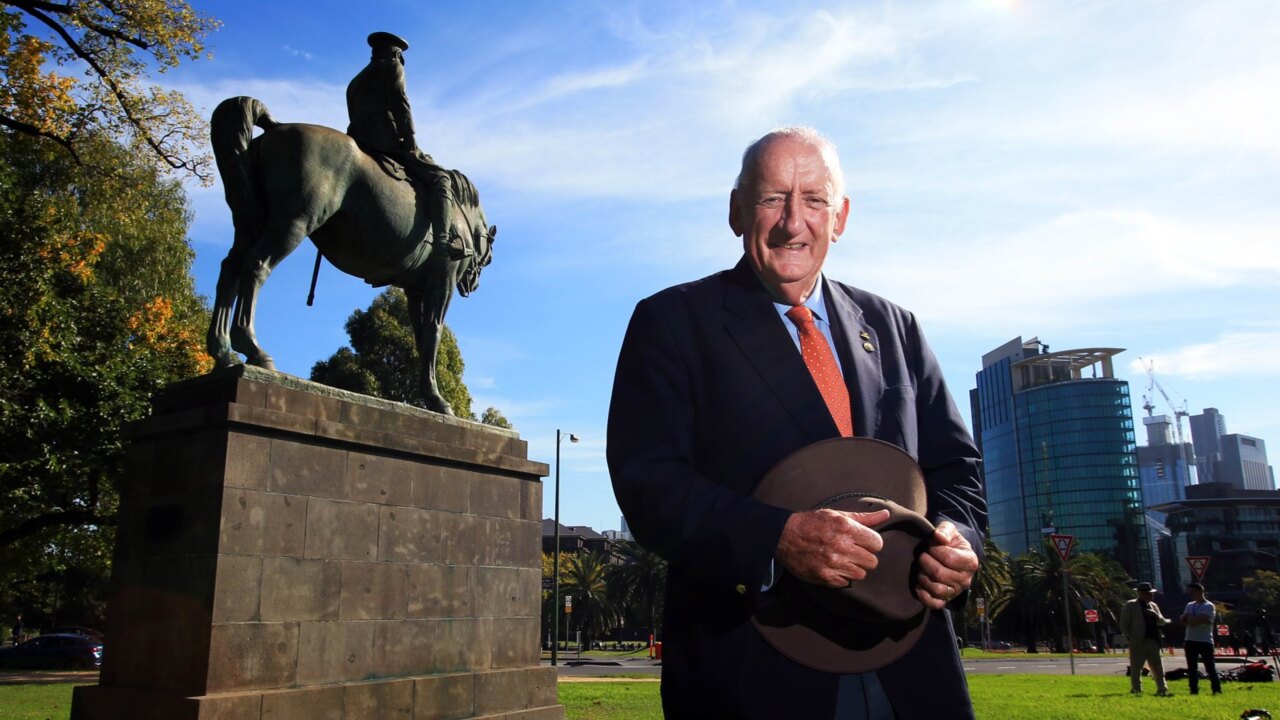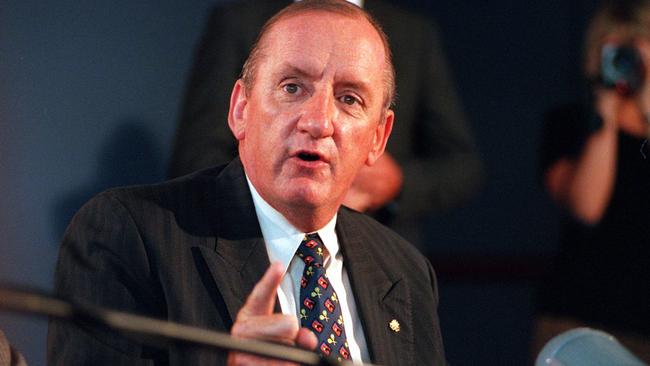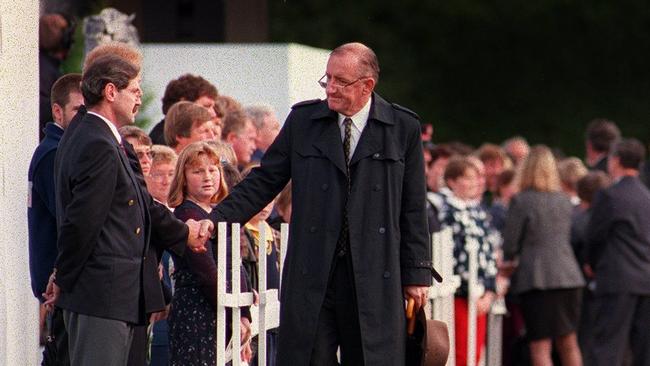‘Thousands of Australians are alive because of Tim Fischer’
Former Deputy Prime Minister Tim Fischer’s determined support of gun reform hasn’t just changed the identity of our country, it’s also saved countless lives. And that’s what public service is truly about, writes Labor MP Andrew Leigh.

Rendezview
Don't miss out on the headlines from Rendezview. Followed categories will be added to My News.
“G’day Andrew, Tim Fischer here”.
As a Labor politician, it’s not every day I get a call from a former National Party parliamentarian, but when he phoned me a few years ago I was delighted to hear from Tim. I admired his military service, and shared his passion for trains. But the issue we most connected on was sensible gun control.
With hindsight, political reform often looks easy. But when the government of John Howard and Tim Fischer set about reforming Australia’s gun laws after the 1996 Port Arthur Massacre, there were plenty of opponents. Opposition Leader Kim Beazley gave his full support, but Bob Katter and Pauline Hanson criticised the National Firearms Agreement.
RELATED: Former deputy prime minister Tim Fischer dies
As Deputy Prime Minister, Tim Fischer recalled being ‘hung in effigy, complete with Akubra’. To his credit, though, he went out to regional communities across the country to explain the policy. The result was a tightening of gun licensing and firearms registration laws, and a buyback that saw one in five guns handed in to police for fair compensation.
Many weapons that were handed back were .22 rifles, sitting unused in the back of wardrobes and garages. As a result, the number of gun-owning households halved.

What was the impact on Australia? In 2010, fellow economist Christine Neill and I published a study that analysed the effect of the package of reforms initiated by Howard and Fischer.
Gun massacres — with five or more victims — had been an annual occurrence in the decade leading up to Port Arthur. In the decade afterwards, there wasn’t a single one.
But the biggest impact of the national firearms agreement didn’t come from reducing massacres, it came from fewer gun suicides. In Australian states where more weapons were handed back, there was a larger drop in firearms suicides than in places where fewer guns had been handed back. We found no evidence that suicide by other methods increased.
MORE OPINION: The Tim Fischer I knew
Similarly, when we looked at gun homicides, we found the biggest reduction in those states that had seen the largest impact of the firearms buyback. With fewer guns in homes, domestic disputes tend not to turn deadly. When teenagers don’t have access to a gun, testosterone-fuelled feuds are less likely to end in tragedy.
If you doubt the importance of gun laws, just imagine what the perpetrator of this month’s Sydney stabbing attack could have done with a high-powered weapon.
Combining the suicide and homicide effects, Christine and I estimated that Howard-Fischer gun reforms save around 200 lives a year. To date, this means that there have been around 4000 Australian lives saved by the National Firearms Agreement since it was first implemented.

Last year, Liberal MP John Alexander and I launched a group known as ‘Parliamentary Friends of Gun Control’. We were joined by Walter Mikac, whose wife Nanette and daughters Alannah and Madeline were murdered in the Port Arthur Massacre. And we were privileged to have Tim Fischer join us.
RELATED: US has it wrong on gun laws, says Tim Fischer
Fischer candidly admitted that the National Party had lost votes in the 1998 election as a result of supporting stronger gun laws. But he was proud of his legacy. To him, the Port Arthur massacre was the equivalent of the US’s Sandy Hook massacre. Yet rather than being cowed by the firearms lobby, Australia’s conservatives had stood up for sensible gun laws. He remained bewildered as to why his Republican counterparts in the United States could not do the same.
In public life, we often think that we can control the causes we champion, and that what matters are the job titles we hold. But that’s not always true. In the end, policymakers are often defined by whether we can act ethically in a crisis. When faced with a tough issue, do you take the easy path, or do the right thing?
When it came to gun law reform, Tim Fischer did the right thing. And thousands of Australians are alive today as a result.
Andrew Leigh is the Federal Member for Fenner
Originally published as ‘Thousands of Australians are alive because of Tim Fischer’


